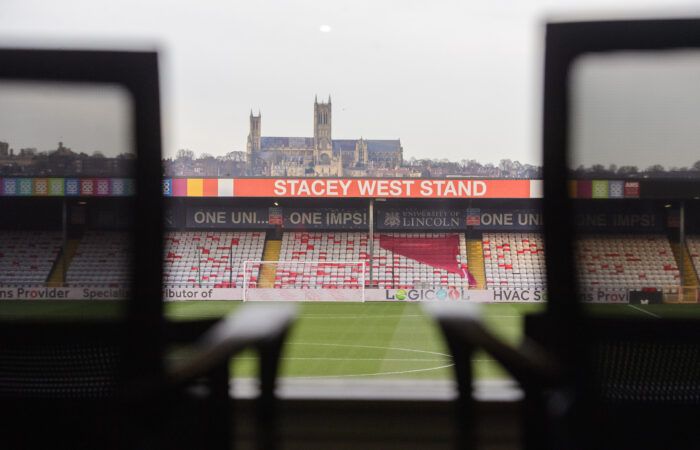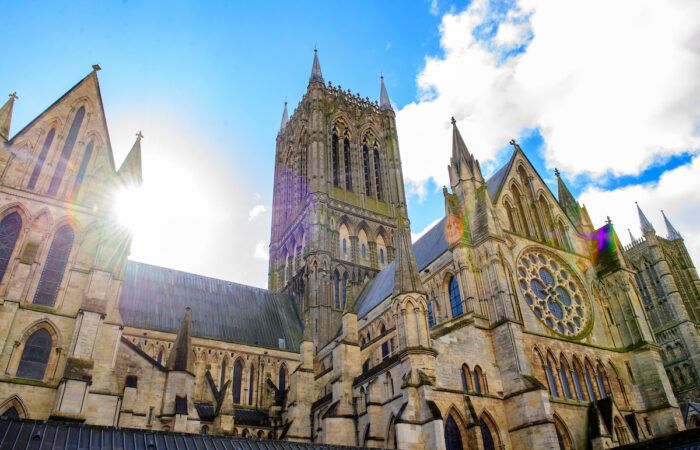Nesting peregrine falcons at Lincoln Cathedral are being broadcast around the world thanks to superfast broadband.
Cliff-dwelling peregrines, which almost became extinct in Britain last century, have more recently re-invented themselves as city dwellers, using tall urban structures to replicate their natural nesting habitat. They’ve been nesting in Lincoln’s central Bell Tower for more than a decade and have raised at least 27 young.
While the local branch of the RSPB originally recorded footage before manually uploading it to the web, the lack of internet access meant members had to regularly climb the 338 steps in the bell tower to access it. Eventually it became too difficult to maintain.
However, a new collaboration between the cathedral, computer scientists at the University of Lincoln and wireless internet provider Quickline means there’s now a live feed of the peregrines looking after their eggs, waiting for their chicks to hatch.
Lincoln Cathedral’s Business Development Manager Samantha Mellows, said, “Lincoln Cathedral has been home to Peregrines for the last 13 years. Visitors hoping to catch a glimpse of the pair and their chicks have had to rely somewhat on good luck to spot these incredible birds up to now, so we are very pleased to partner with the University of Lincoln and Quickline to enable people to see them in their scrape, using the livestream technology.
“It means we can share stories of our Peregrines throughout the season and encourage the public to engage and learn about the birds, while supporting research to protect the species.”
Bruce Hargrave, from the University of Lincoln’s computer science department, a keen amateur wildlife photographer who was instrumental in setting up the livestream, said, “We are thrilled to be working on this project which is providing unique data for this particular pair of breeding birds. It’s also giving our students the opportunity to come up with computer vision and data collection techniques so that we will be able to automatically gather and record this vital information.
“With Quickline providing the means for information transmission and the cathedral allowing the University to stream the video from the Cathedral bell tower, we also have a very reliable monitor for the health of our local environment and a great learning opportunity, not only for our students but for everyone with an internet connection and an interest in nature.”
Quickline, which specialises in bringing superfast broadband to hard-to-reach locations, is delighted to be involved. Hayley Silvester, Head of Sales for Quickline, said, “Superfast broadband technology helping to protect what is believed to be the fastest creature on the planet, reaching speeds of up to 180mph when diving in flight. It couldn’t be a more perfect partnership.
“Broadband availability isn’t necessarily something that immediately springs to mind when you’re considering how to monitor environmental changes but, as Peregrine falcons are fantastic indicators of how well our local wildlife is fairing, it is extremely gratifying to know that we can help protect them in this small way.”
Links to video footage and the live video stream can be found at: www.lincolnperegrines.stream

